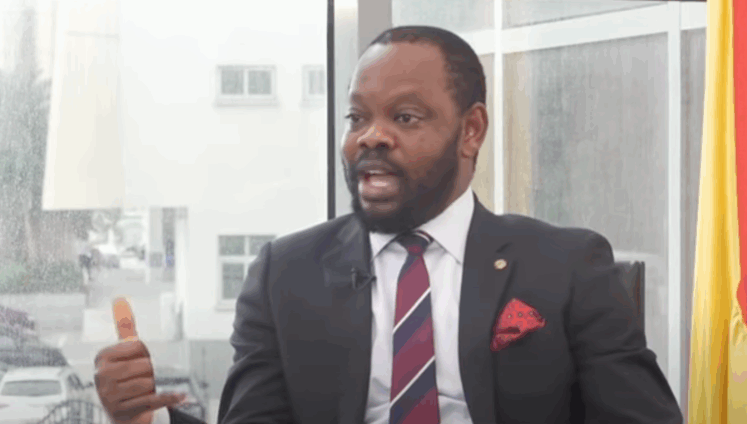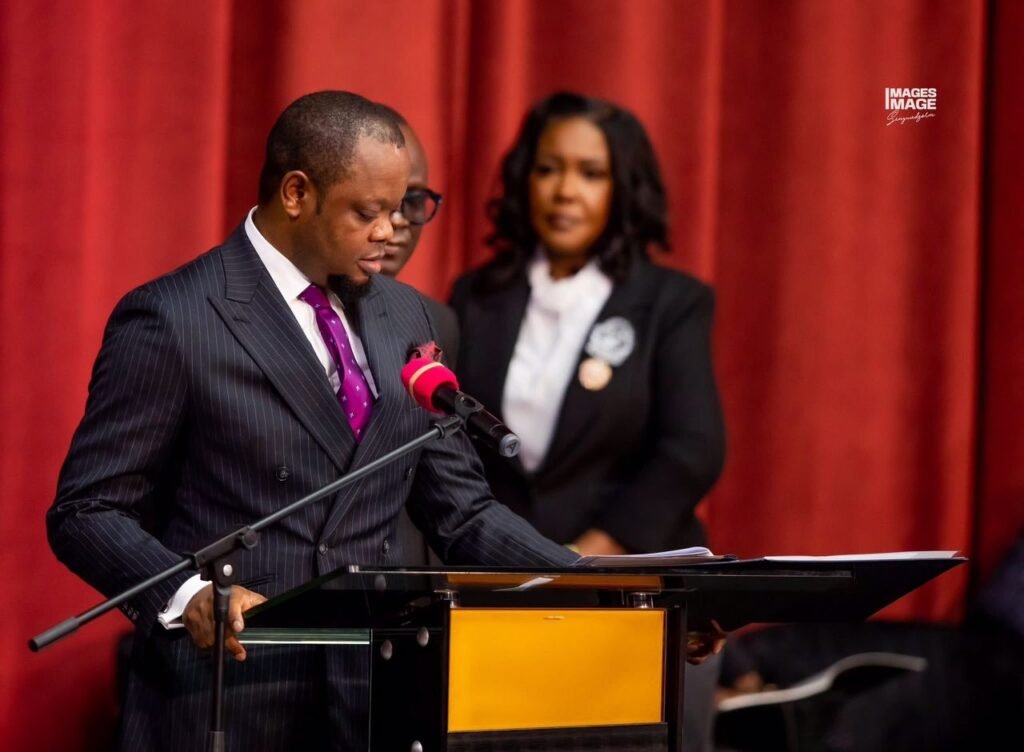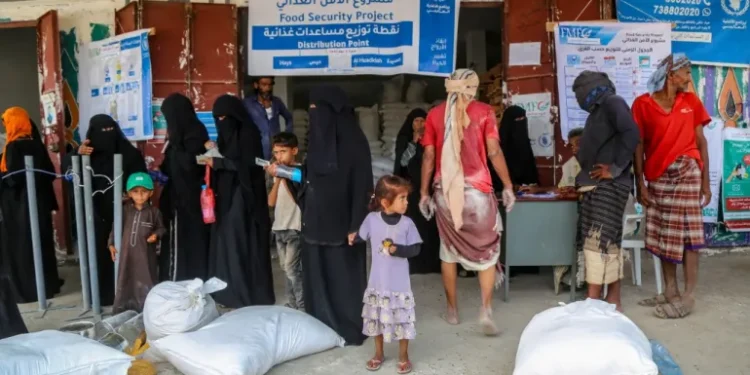Deputy Attorney-General and Minister for Justice, Dr. Justice Srem Sai, has confirmed that the Attorney-General’s Office is yet to receive a complete investigative docket from the Office of the Special Prosecutor (OSP) to initiate the formal extradition process for former Finance Minister, Mr. Kenneth Ofori-Atta.
Speaking on the matter, Dr. Srem Sai clarified that although the OSP has made significant progress in its ongoing criminal investigations into Mr. Ofori-Atta, the Attorney-General’s Office cannot proceed with extradition without the requisite documentation from the investigative authority.
“The subject of a number of criminal investigations—right, I think the one that is popular—is the one that the OSP is conducting. That is the one that we are made to believe is in an advanced stage where extradition will be required.”
Deputy Attorney-General and Minister for Justice, Dr. Justice Srem Sai
He further noted that the OSP has already placed Mr. Ofori-Atta on an Interpol Red Notice, signaling to global law enforcement agencies that he is wanted for alleged criminal offences.
However, he clarified that an Interpol Red Notice does not in itself constitute an extradition request. “Interpol is not an extradition procedure,” he stressed. “So if we really want the person to come, we need to make an extradition request to where we believe he is—which is the United States.”

Dr. Srem Sai explained that under Ghanaian law, the Attorney-General’s Office is the sole authority empowered to make an official extradition request. This process, however, can only be triggered once the OSP furnishes the AG’s Department with a comprehensive investigative docket that outlines the charges, evidence, and legal basis for the extradition.
He revealed that the Attorney-General’s Office has made several formal attempts to obtain the docket from the OSP, including written letters and follow-up demands, but has yet to receive the complete documentation required to proceed.
“We have made several requests to the OSP—written letters, written demands to the OSP—asking that now that you’ve announced to the world that you are ready to have this person extradited, and there have been communications to that effect, even indicating that the docket is ready.
“We have been asking for the dockets for a couple of months now. We still do not have the dockets from the OSP.”
Dr Justice Srem Sai, Deputy Attorney General and Minister for Justice
He emphasised that without the docket, the Attorney-General’s Office is unable to formally approach U.S. authorities with an extradition request. “We need to show evidence—because when they are asking for people to be extradited to the United States, they bring the full dockets, as if they are going to court. We also have to do the same thing,” he said.

Submission of a Full Dossier of Evidence
Dr. Srem Sai further elaborated that the process requires the Ghanaian government to submit a full dossier of evidence, legal analysis, and relevant documents demonstrating why the individual is wanted for prosecution.
“We have to take a full docket of all the evidence and how we believe the law applies, and then we take it to the United States authorities. From there, they will assess whether the case has merit and whether it meets the threshold for extradition.”
Deputy Attorney-General and Minister for Justice, Dr. Justice Srem Sai
His remarks come amid growing public speculation about delays in the extradition of Mr. Ofori-Atta, who is facing allegations of corruption and financial impropriety connected to his role as Finance Minister.
The OSP has been investigating him for months in relation to a number of corruption-related cases, including alleged irregularities involving Strategic Mobilisation Ghana Limited (SML) and other financial transactions during his tenure.
The Deputy Attorney-General’s clarification provides context to the recent debate over the pace of the extradition process, amid suggestions that bureaucratic friction between the two institutions—OSP and AG’s Office—may be slowing progress. Dr. Srem Sai’s comments, however, suggest that the delay is procedural rather than political.
He reiterated that extradition is a highly technical process that must adhere to both domestic and international legal standards, and as such, the Attorney-General’s Office must proceed on the basis of complete and verifiable evidence.

The Deputy Attorney-General’s statement effectively underscores the interdependence between the OSP’s investigative function and the Attorney-General’s prosecutorial authority in Ghana’s criminal justice framework.
His comments also echo earlier reassurances from the OSP that its work on the Ofori-Atta case is at an advanced stage and that the final docket will soon be transmitted to the AG.
As both institutions move toward the next phase of the process, public attention remains focused on whether the former Finance Minister will indeed be extradited to face justice in Ghana. For now, the Attorney-General’s Office maintains that once the OSP’s docket is received, the machinery for extradition will be set in motion without delay.
READ ALSO: Ghana Inches Closer to $380 Million IMF Disbursement as Board Review Looms in December























